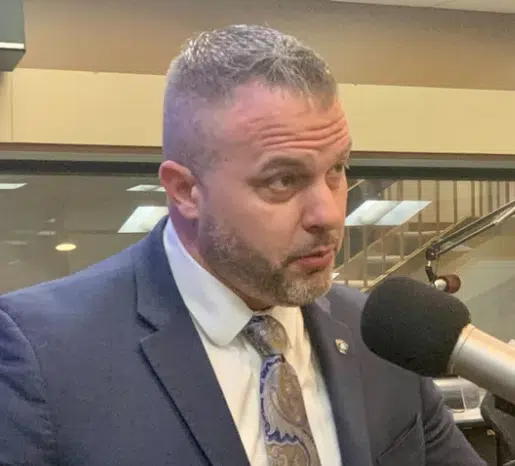MINNEAPOLIS (KFGO/WCCO) – Brian O’Hara, the nominee for the next chief of police in Minneapolis will meet with the City Council next Thursday for a final vote on that nomination.
Mayor Jacob Frey has said the job of Minneapolis Police Chief is “not for the faint of heart” and is an act of courage to want the job.
The city has had a challenging three years with civil unrest in the wake of the killing of George Floyd. That, combined with the COVID-19 pandemic contributed to significant attrition within the department.
O’Hara said he believes he is in Minneapolis for a reason.
“I think I’m here on purpose,” O’Hara said. “I think things in life happen for a reason. The culmination of all the life experience I’ve had, particularly over the last five years in the city of Newark have prepared me for this moment.”
O’Hara comes to Minneapolis after working as a Deputy Mayor of Police Services in Newark, N.J.
He has a varied background in law enforcement including as New Jersey’s Public Safety director, a role similar to the new Minneapolis Commissioner of Public Safety that is held by Dr. Cedric Alexander.
O’Hara would report directly to Alexander and Mayor Frey.
“Newark is a different city from Minneapolis, but certainly it’s similar in very important ways,” O’Hara said. “Newark is a place that has historically dealt with serious problems around gun violence, and has also dealt with serious issues around police-community relations. I think the story of Newark over the last five years is that you can address both of those issues. You don’t have to choose between focusing on addressing and protecting people’s human rights. You can do that and address serious crime in a meaningful, impactful way.”
There is certainly work to be done to reduce crime in Minneapolis, and restore trust from the community.
O’Hara said he understands that challenge and believes he can make an impact.
“It is work that I deeply believe in, and that gives great purpose to my life,” O’Hara said.
As for initial priorities, O’Hara said there is a clear number one.
“The greatest priory today is addressing gun violence,” O’Hara said. “I do think that there is a lot of momentum already in place. In terms of law enforcement, I believe it’s a collaborative effort.”
O’Hara met with U.S. Attorney Andy Luger this week.
“I’m really encouraged about his dedication, the dedication of all the law enforcement partners here, federal, state, and local, to helping bolster the police department’s efforts in this regard,” O’Hara said “And to be precise about trying to remove that small percentage of people who are out here pulling triggers and causing serious harm in the community.”
Another challenge is recruiting officers.
While Mayor Frey has put significant money in his proposed budget for the police department and recruitment, the department has around 300 fewer officers than it did at the time of George Floyd’s death.
O’Hara notes that it is important to recruit not just police officers, but officers who live in the city – something the department has been criticized for in past years.
Data prior to the death of Floyd show less than 10 percent of Minneapolis police officers actually live in the city. The four officers responsible for Floyd’s death all lived outside the city.
O’Hara wants to focus recruitment in the Minneapolis community which he said will help change the culture of the department.
“I think the ongoing challenges we have revolve around culture change within the agency and around rebuilding the ranks of the department,” O’Hara said. “I think it’s very important that we invest and that we’re very intentional about trying to recruit residents of this city to be police officers here.”
O’Hara does add it will take some significant time before the community sees real results of this effort.
Since he was nominated for the role by Mayor Frey, O’Hara has been spending time in the community. He said his experience will help him build back trust in the department, especially in the African-American communities of the city.
O’Hara said he is open to looking at whether the city could implement a policy prohibiting employees from joining hate groups as well.
“It’s certainly something I’m familiar with,” O’Hara said. “I come from a very diverse background, grew up in a diverse neighborhood, and the City of Newark is a majority African-American city. So far in my experiences here, I’ve been to African-American communities, and I can tell you I’ve been incredibly well-received, embraced, shown nothing but love. What I’ve seen here, particularly in the African-American community is that there is a real desire to have policing, to just have good policing.”




